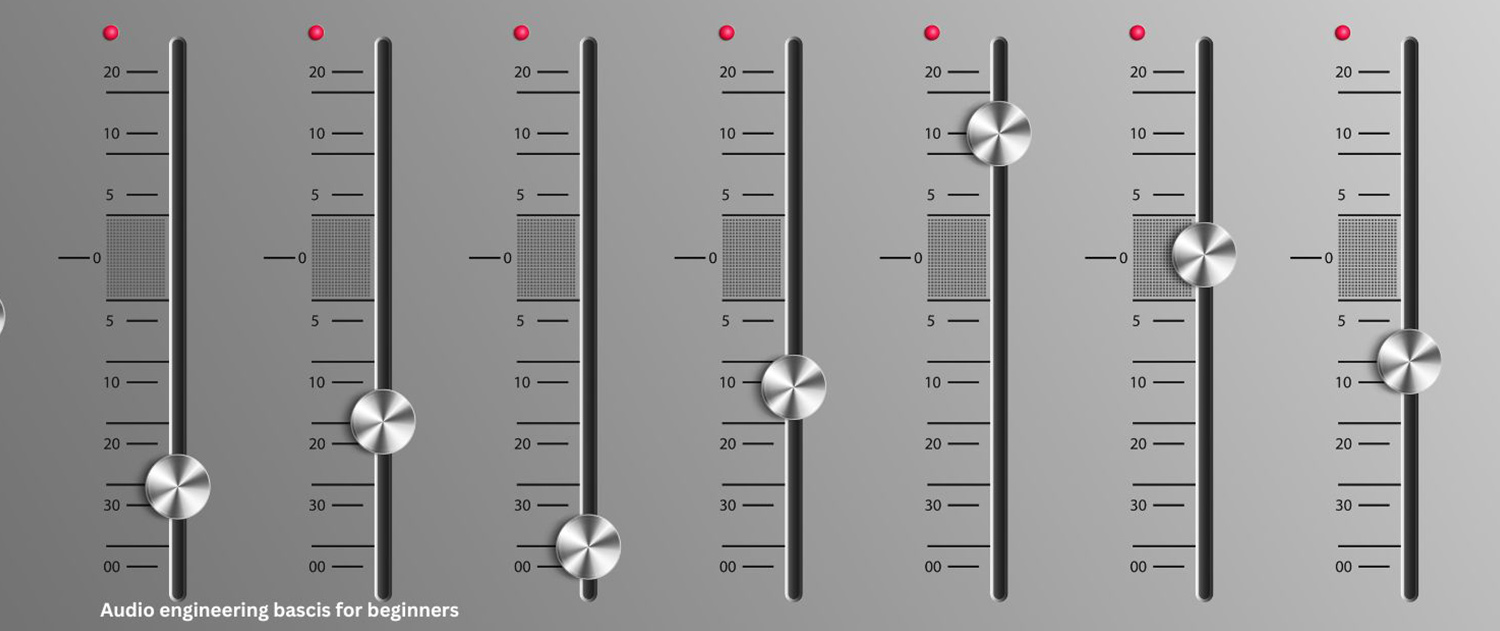Course Overview
This course is designed to introduce beginners to the fundamental concepts and practical skills needed in audio engineering. Whether you're aspiring to be a recording engineer, live sound technician, or music producer, this course will provide you with a strong foundation.
Module 1: Introduction to Sound
- Understanding Sound Waves: Learn about the nature of sound waves, including frequency, amplitude, and wavelength.
- Hearing and Perception: Explore how humans perceive sound and the importance of critical listening.
Module 2: Audio Equipment and Signal Flow
- Microphones: Study different types of microphones (dynamic, condenser) and their applications.
- Audio Interfaces: Understand how audio interfaces convert analog signals to digital.
- Mixing Consoles: Learn the basic functions of a mixing console, including channel strips, faders, and bus routing.
- Monitors and Headphones: Discover the role of studio monitors and headphones in audio production.
Module 3: Recording Techniques
- Microphone Placement: Practice techniques for optimal microphone placement for various instruments and vocals.
- Gain Staging: Learn how to set proper input levels to avoid distortion and noise.
- Recording Environment: Understand the impact of room acoustics on recordings and how to manage them.
Module 4: Introduction to Digital Audio Workstations (DAWs)
- DAW Basics: Understand how to use EQ to balance and shape the sound of individual tracks.
- Session Setup: Learn how to create and manage sessions, track recording, and file organization.
- Basic Editing: Gain skills in editing audio, including cutting, copying, pasting, and arranging clips.
Module 5: Mixing Essentials
- Equalization (EQ): Understand how to use EQ to balance and shape the sound of individual tracks.
- Compression: Learn the basics of dynamic range compression to control the levels of your tracks.
- Effects Processing: Get introduced to using reverb, delay, and other effects to add depth and character to your mixes.
- Panning and Balance: Practice positioning sounds within the stereo field to create a coherent mix.
Module 6: Introduction to Mastering
- Finalizing Mixes: Learn the principles of mastering, including loudness normalization and final EQ adjustments.
- Preparing for Distribution: Understand how to prepare your final mixes for various distribution formats.
Module 7: Practical Workshops
- Recording Sessions: Participate in recording sessions with live instruments and vocals.
- Mixing Projects: Work on mixing projects to apply what you've learned in real-world scenarios.
- Critique Sessions: Receive feedback on your recordings and mixes from instructors and peers.
Module 8: Industry Insights
- Career Paths: Explore different career opportunities in audio engineering and music production.
- Networking: Learn the importance of networking in the music industry and how to build professional relationships.
- Staying Current: Discover resources for continued learning and staying updated with the latest audio technology trends.
Learning Resources
- Books: Recommended readings include "The Mixing Engineer's Handbook" by Bobby Owsinski and "Mastering Audio" by Bob Katz.
- Online Communities: Engage with online forums such as Gearslutz and Reddit’s r/audioengineering for additional support and networking.
By the end of this course at Muzik Lounge School of Audio Technology, you will have a comprehensive understanding of the basics of audio engineering and be equipped with the skills to start creating professional-quality recordings and mixes.

